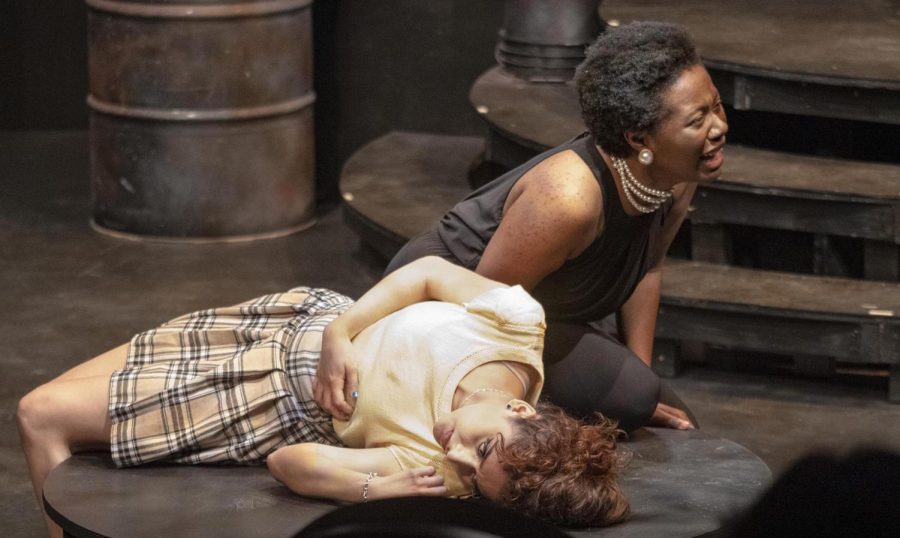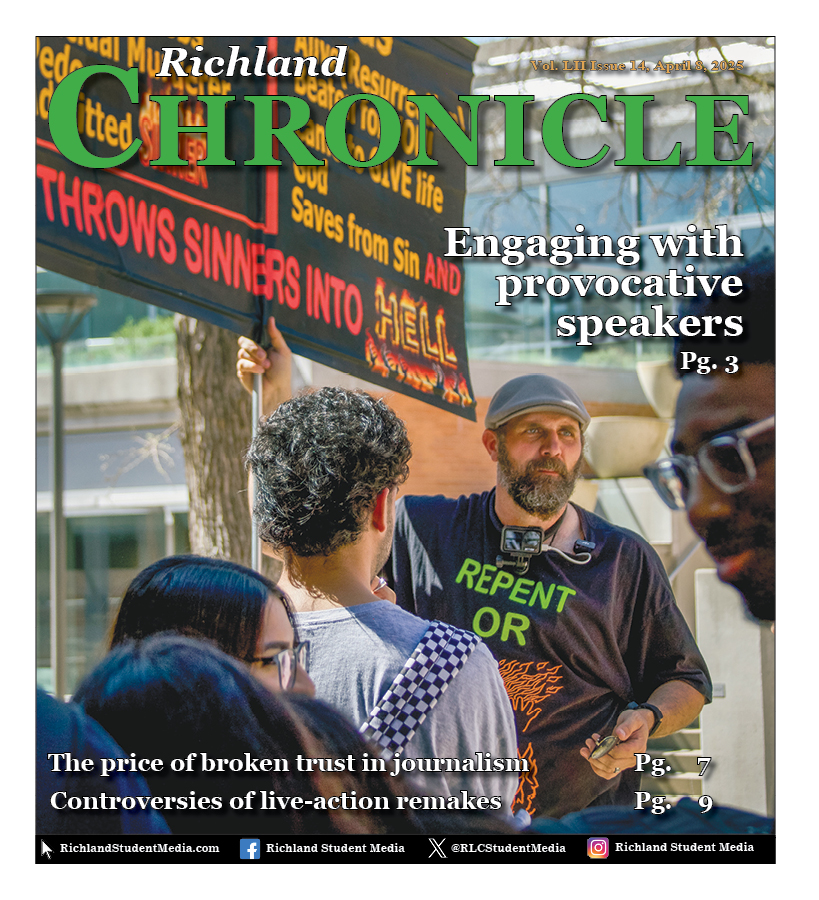Live theater returns to Richland with ‘Antigone’
Azucena Madrigal, left, and Kendra A. Bailey rehearse a scene during “Antigone” on April 25.
May 17, 2022
Tragedy has struck at Richland campus, in a theatrical sense, as the drama department puts on its rendition of the Greek tragedy “Antigone.”
It’s the first play to grace the stage in Fannin Hall on April 27, since the two-year hiatus due to the COVID-19 pandemic and the closing of campus buildings.
“The last thing you can do during a pandemic that is spread the way this one is, is be in a small room yelling at each other and spraying [germs],” said director Gregory Lush. “Theater is about conflict, so its heightened emotional states consist of almost always volume and projection. It was just impossible. The school had just shut down. It wouldn’t have been possible.”
Lush worked alongside colleague and friend Montgomery Sutton, who was the playwright of the modern, media emphasized tragedy of Antigone. Lush credits Sutton with the idea of incorporating media so heavily into the production.
In this play, the well-known, once-Theban chorus is represented by vloggers who persistently record and post nearly every irreversible action taken by Antigone and Creon, the play’s central characters.
“In a Greek tragedy, the chorus comes out and talks directly to the audience and marks on the morality of what’s going on, the religious implications, the societal implications.
To the Greeks that was kind of all the same thing. I was trying to find a way to convey that to the audience so social media made sense.”
“We’re all on our cellphones, everything’s TikTok, everything’s Instagram videos. We wanted to capture that. It’s like all these different vloggers are relating in different ways. Usually [the chorus] is in stark contrast to each other, which is kind of how social media is. You have really partisan elements all stating their case. They’re looking at the same events through completely different lenses,” Lush said.
This isn’t the only modern modification to the thousands-of-years-old tale. The names are changed in the play as well.
Antigone becomes Ann and Creon is known as Craig La Costa.
“We wanted to find modern analogies to those old names because those old names can really throw people off, especially in a play that’s in a modern environment,” said Lush.
Nonetheless, as much as a society changes through the times, students can still look forward to an aspect of relatability in the play, especially tragedies as the campus nears finals season.
“As much as it is a church versus state sort of drama, those big, large political and religious themes, they’re playing out in a family setting. It just happens to be that they are a political family thrown into the public square,” Lush said.
“In this play very often, it just feels like Antigone is the hero and Creon is the villain. But she’s just as hardheaded as he is and she takes a lot of these people down with her as a result of her actions.”
“So personal responsibility and the tension between the state and morality, it’s a religious conviction for her that she wants to bury her brother.”
“In ancient Greece, if the dead were not buried then they didn’t travel to the next life and it was a great dishonor.“
“So her religion butting heads with the modern state, that’s very present in modern society. We’re still fighting those same sorts of battles all the time.”




